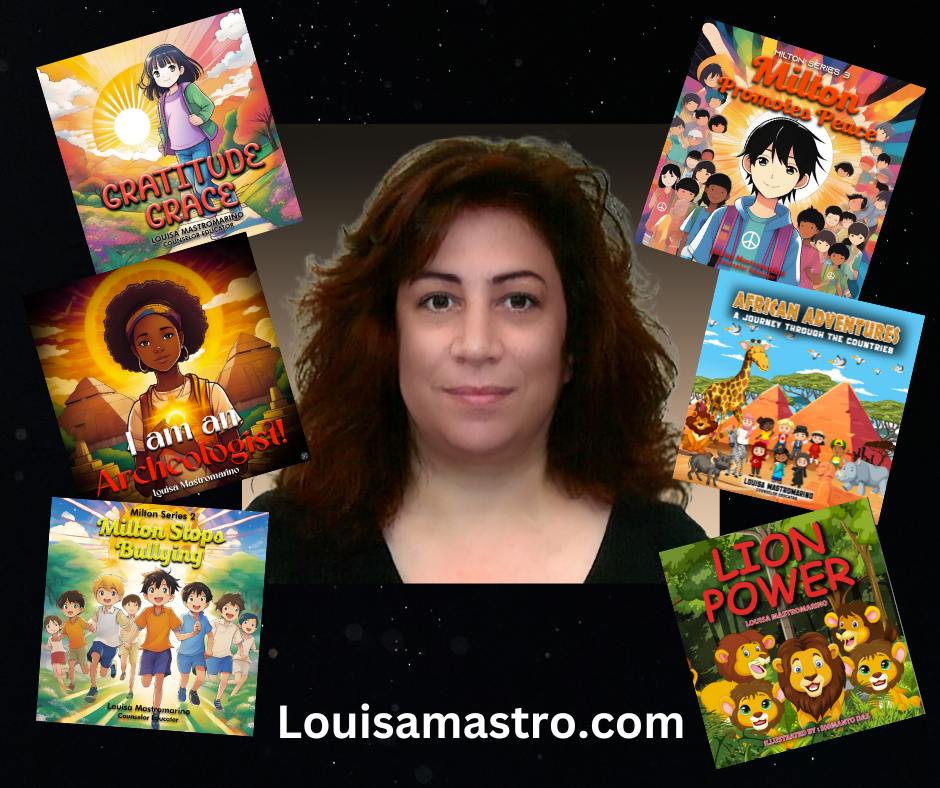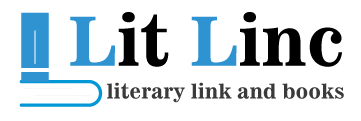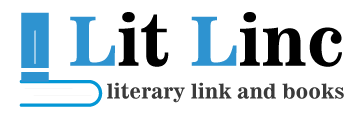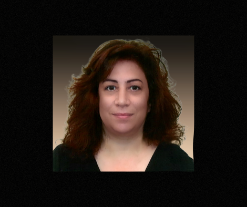The Interview - LOUISA MASTROMARINO
http://www.louisamastro.com
When you're working on a book and a new idea pops up, should you pursue it immediately (also known as 'UP syndrome') or finish your current project first? What do you think is the best course of action?
In general, I believe in striking a balance between pursuing an idea immediately and allowing it to mature over time. If the idea is time-sensitive or requires urgent action, I prioritize executing it promptly to capitalize on the opportunity. However, if the idea is complex or requires careful consideration, I may choose to wait and gather more information, conduct research, or seek feedback before putting pen to paper. Ultimately, my decision is driven by a mix of intuition, experience, and strategic thinking to ensure the idea is developed thoughtfully and effectively.
What are some books or authors that you would recommend to our readers?
As an advocate for diverse voices in literature, I highly recommend several authors whose works have touched the hearts and minds of readers worldwide. Among them, Kurt Vonnegut, Maya Angelou, and Emily Dickinson stand out as exceptional writers whose words resonate deeply with readers of all backgrounds.
Kurt Vonnegut, known for his satirical wit and profound insights into the human condition, has crafted thought-provoking work such as "Slaughterhouse-Five" that challenge readers to examine the complexities of life and society.
Maya Angelou, renowned poet and memoirist, is celebrated for her powerful storytelling and unwavering courage in addressing themes of race, identity, and resilience. Her iconic work "I Know Why the Caged Bird Sings" continues to inspire and empower readers around the world.
Emily Dickinson, regarded as one of America's greatest poets, explores themes of nature, mortality, and the human spirit in her evocative and introspective poems. Her lyrical style and profound observations on life continue to captivate readers of all ages.
I wholeheartedly recommend these authors to anyone seeking literary works that challenge, inspire, and illuminate the complexities of the human experience.
Tell us what you enjoy most about writing [genre].
What I enjoy most about writing is the ability to express my thoughts and ideas in a clear and impactful manner. Through writing, I can communicate complex concepts, share stories, and connect with readers on a deeper level. Crafting well-written content allows me to engage with different perspectives, learn new things, and inspire others through the power of words. Ultimately, writing provides me with a platform to make a meaningful impact and contribute to the collective knowledge and understanding of our world, especially for children.
Have you been able to incorporate your previous experience in [jobs/education] in your writing?
Incorporating my teaching experience into my writing has greatly enriched my work by allowing me to effectively convey complex ideas in a clear and engaging manner. Drawing upon my background in education, I approach writing with a focus on structuring information logically, tailoring content to suit diverse audiences, and incorporating interactive elements to enhance reader engagement. As a children's book author, I am able to create content that is not only informative but helps children foster a deeper understanding and connection with the world.
Have you ever experienced writer’s block? How did you deal with it?
To overcome writer's block, I often find it helpful to take a step back and engage in activities that promote creativity and relaxation. This may include going for a walk, practicing mindfulness or meditation, listening to music, or even reading a book in a different genre. I also make sure to create a conducive writing environment free from distractions, set realistic goals, and break down my writing tasks into smaller, manageable blocks. Additionally, seeking inspiration from diverse sources such as art, nature, or conversations with others can help reignite my creativity and motivation. Ultimately, persistence, patience, and a willingness to experiment with different techniques are key in overcoming writer's block and getting back into a productive writing flow.
Did you always want to be an author? If not, what did you want to be when you grew up?
Yes, I have always been drawn to the art of storytelling and the power of words. From a young age, I found solace and inspiration in reading books and listening to music with profound lyrics. These experiences fueled my desire to become an author. Writing allows me to explore worlds beyond my own, touch the hearts of readers, and communicate ideas in a meaningful way. It has been a lifelong aspiration of mine to share my stories with children and make a positive impact through my writing.
Where do you like to write? In a coffee shop? In your home office? On the beach?
As a writer, I find solace and inspiration in the tranquility of my home office. The calm and familiar environment allows me to focus intently on my thoughts and ideas, enabling me to craft well-thought-out and impactful pieces. Additionally, the convenience of having all my resources readily available enhances my efficiency and productivity. Overall, my home office serves as the ideal space where creativity flourishes and my writing truly comes to life.
What other hobbies do you have outside of writing?
Outside of writing, I have a few hobbies that I am passionate about. I find fulfillment in practicing photography and creating abstract artwork. Additionally, I enjoy staying active through hiking and exploring nature, which not only rejuvenates my mind but also inspires my creativity. Lastly, I find solace in writing music for meditation and relaxation. These hobbies complement my writing by providing me with different perspectives and experiences that enrich my craft.




